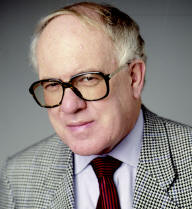The Editor's View June 05
Magazine

John Jenkins' monthly column from Writers' Forum magazine
Tell the world and get discovered ...ambiguity and poetry . . . a blog tale from Iraq. . . stamina is all for a novelist
IT’S EASY to get published – providing you don’t want paying and you are prepared to go online: an action which is much more prevalent in the United States and Australia. But news is starting to filter through that even some British writers are being discovered by agents and publishers who trawl the internet.
Certainly there are no geographical boundaries as we understand them. As this magazine reported, one wide-awake British publisher snaffled an American writer 3,500 miles away.
Take the experience of a 29-year-old Iraqi architect calling himself Salam Pax. He kept a blog, (internet diary) recording the last days of Sadam Hussein and the Anglo-American invasion.
It earned the attention of American publisher Grove Press and now the blog is published in book form.
One of the few sites which pays for submissions is the Australian site: NewMatilda.com, which seeks articles and stories which contribute to public debate on the issues of the day.
I know we have had enough public debate recently with everybody suffering from election fatigue but it is worth checking this site.
Another site worth a look is run by Queensland University: www.austlit.com.apr. Or you could try Australian Reader.com.
Back to more mundane matters; have you read the Poetry Society’s latest prize winners? From the huge number of entries received a casual observer might suppose that this was the best of verse being written at the moment.
The winner, Jon Sait, received £5,000 and praise from judge Simon Smith who liked the poem’s ambiguity. I thought it hardly Shakespearean or Miltonian.
Despite being required to study Auden, Eliot and Spender, I think I prefer them. And I’m sure I prefer Blake, Wilfred Owen and Dylan Thomas. Perhaps it’s the Welshness coming out.
There’s great joy in Wales, we are told, because it is to have its own national poet. The first holder of the office is to be the distinguished Gwyneth Lewis who, unlike England’s Poet Laureate, will not be required to write verses for specific formal occasions.
Nevertheless Gwyneth has already written a poem to mark the Welsh rugby team’s grand slam victory. Gareth Edwards and JPR will be bursting with pride.
But will this devalue the winner at the National Eisteddfod? Gwyneth, who read English at Cambridge and took a DPhil in the same subject at Oxford, has a website you might like to visit: www.gwynethlewis.com.
***
HONOURS and prizes continue to be awarded although the British Book Awards ran into a spot of bother with its latest effort: the inaugural Decibel Book of the Year.
The award is open only to writers of African, Caribbean or Asian descent and it has been accused by some commentators of being patronising and bigoted.
Many people think that such awards are misguided. One critic is the editor of New Nationa l, Britain’s leading black newspaper, Mike Massive.
"There’s no such thing as white or black literature, just good or bad."
A spokesman for the Arts Council, which sponsors the award, said: "Decibel is about raising the profile of culturally diverse work . . .we believe ethnic minority writers are under- represented."
So which downtrodden under-appreciated soul won the award? Public school educated Oxford graduate Hari Kunzru.
Starting with V.S. Naipaul and moving on to one of my favourite cricket writers, C.L.R.James, I listed more than 20 in five minutes and beg to disagree on the need for this award.
It’s like having a prize for writers over 40 – are they better or worse than those aged 38?
Or those under 30? Pity those who get to 32. As for gender differentiation, I can only quote my daughters who claim that women who seek equality have no ambition. It’s a great marketing ploy by the telephone giant Orange to gain free publicity helping its sale of mobile phones to women, but please don’t try to invest it with higher motives.
***
IT WAS Woody Allen who said that 90 per cent of genius was turning up. And I am beginning to believe that 90 per cent of publishing success is strength and stamina.
How does anybody take 10 rejections and come back to succeed with number 11? This was not some half-crazed, ill-educated dope but a hugely successful journalist, Jane Bidder.
I wonder if authors ever fully cost the time it takes to write a book. Do those who self-publish calculate their time at so much an hour – £10, £30 or even £300?
Let’s say it takes you 1,000 hours to finish a book, including research and revision. Add in lost opportunity time when you could be gainfully employed. But then money isn’t the only reason to write.
John Jenkins, Publisher, Writers' Forum
Read the article about setting up WritersServices which was originally published in Writers' Forum magazine.
© Writers International Ltd 2005. Reproduced from the December-Januray edition of Writers' Forum magazine by kind permission of the editor.
